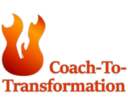

Impact of coaching on Organizations
- Jan 30th 2023
Global companies are competing in the talent war to attract the best talent to give their respective organisations a competitive advantage. Companies are engaged in conversations around attracting and retaining their best talent and adopting various methods to be the employer of choice. The talent gaps at the senior leadership level are big and companies need to bridge the gap by fast-tracking career growth for their internal talent pool. In conversations around productivity and talent bench, a key element that needs to be picked up is how the senior leaders in the organizations take an effort to coach the team and the impact it is creating. The leaders need to create the foundation for embracing a coaching culture in the organization and be the drivers for this change.
Investing in the development of a coaching culture is not just a competitive advantage but a business imperative. A strong coaching culture improves employee resilience and overall organizational success. It’s easier said than done, coaching is not a skill that managers learn in one day and start to coach their team effectively. There must be a structure which needs to be built within the organization – a safe platform where the managers can practice the coaching skills of their leaders and peers who have proven coaching skills. The practice of various coaching competencies like trust, active presence, active listening, and the skill to ask open-ended and curiosity-generating questions will help the managers to evolve as a coach and will add much value to the conversations around developing their team – giving them the flexibility, choice and enhancing their decision-making skills.
Developing and building a coaching culture in the organization is a journey. A journey of unlearning and learning new skills and behaviours. It is not something that will yield result in a day or two – the investment in the form of time should continue with consistency. Ever since Covid 19, the speed with organizational priorities is changing at lightning speed. At such times, top leaders in the organization shouldn’t push the coaching conversations to the backfoot but rather continue the talent conversations and create concrete action plans to address the talent gaps. Coaching can significantly increase many aspects of self-awareness for associates which in turn will help the associates to take ownership and accountability for their own personal development aligned with their career aspirations.
Coaching provides invaluable space for personal development. One of the major challenges, organizations are facing is lack of confidence in many associates because of which they do not demonstrate the potential for leadership roles. Coaching helps to unlock the true potential of the employees. Coaching conversations are nonjudgmental, and the outcome focuses on enhancing the associates’ performance and potential. During the coaching conversations, associates learn new strategies and communication approaches, which further improve their self-confidence. The deeper coaching conversations influence their internal thought process and change of behaviour. This is often where coaching is most effective.
In the past few years, several research has been conducted to measure the impact of coaching in organizations. Majority of the companies who have used coaching as a leadership development strategy report that they have achieved a return on their investment. In a nutshell, coaching has a huge impact on overall organizational development – unlocking talent, fostering and developing a culture of learning and growing, creating an empowered workforce and constantly striving to develop business acumen and self-awareness among the associates. The important thing about coaching is that you have to trouble the comfortable and comfort the troubled!!
Author Name: Krishna Kumar
Title of the Blog: Impact of coaching on organizations
Program Attended with CTT: ACC14102022
Reason for taking this program: I would like to get certified by ICF
What worked for you: I am able to gain knowledge about various aspects of coaching, the structure and the competencies to be developed to evolve as a coach. The sessions were interactive and thought-provoking.
What benefits you got: The facilitator ensured interactive sessions. The sessions were meaningful and focused on developing self-awareness. Detailed discussions on various competencies bridged the knowledge gap. The practice sessions were helpful in drawing various insights and perspectives.









0